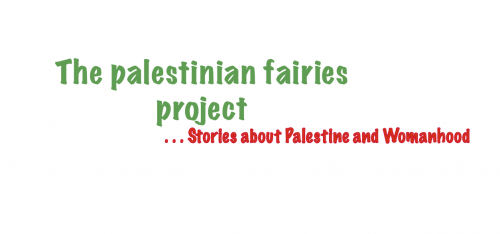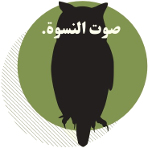
At the Palestinian Fairies Project we show the Palestinian Women’s experience for what we believe it to be: a tapestry of thoughts, feelings, memories and day-to-day realities that extend in various directions both in space and time. There are several principles that support our weaving together of the project. The first is our commitment to narrative as an essential function of the liberation struggle. The second is our belief that our largely diasporic existence as Palestinians makes it essential that diverse voices are consciously brought into the fold of the liberation struggle. And lastly, we believe that Palestinian Women’s voices have for too long been resigned to the margins of our histories and that there is a dire need to end this condition. These three principles interact with one another in the making of the Palestinian Fairies Project in ways that are potent and intricate. For example, while we believe that women’s voices are a large and important part of the diverse voices that make up the Palestinian experience, we also realize that there is a great deal of diversity that is inherent in Palestinian womanhood, too. Facilitating a rich relationship between these things is what we aim to do here.
Our reasons for taking on this project are both abstract and concrete, both personal and political, both long-term and immediate, both feminist and Palestinian… Our aim is to break down these conceptual and practical boundaries that cage our notions about Palestinian Womanhood so that we may arrive at a more effective and more fair course for the struggle. There is no mutual exclusivity between the fight for women’s rights and the liberation of Palestine – our submissions hammer into this wall with incisive analysis and sensual artistic renderings of the situation. Woman’s roles in the fields of development are unique and catalytic; the same can be said of her experiences in the resistance movement – the fertile area that these experiences offer for the greater fields and projects that they are part of will also be explored by our articles.
One might question whether we are overstating the role of such a narrative in the wider framework of the liberation struggle. To that we answer that the role of narrative, its functions and its effects, are indeed very difficult to gauge. But we can say with total confidence that these stories a necessary, an intrinsic part of the struggle. The history of our region and the fight for liberation is a testament to this. We have for so long tied our fight to the written word, and in particular, to the articulation of our identities…Sajjel!, Mahmoud Darwish famously once roared, Ana 3arabi…Our project recognizes this tradition and believes that we must revive it. But we must also restore it with the dynamism necessary to reflect our changing realities, and we do this by widening the net that the narrative casts on voices of Palestine. We subscribe to to teachings of Edward Said, Frantz Fanon, Audre Lorde that tell us that we must engage in a deep examination of the oppressive confines that are placed on language, by colonialism or sexism or heteronormativity, or all three, and to extract these confines in order to recreate and actualize our potentials. We understand this is as long process that can only be done through collective and conscious efforts. With that we bring to you our first issue…
We hope that you’ll enjoy and reflect on the exciting collection of articles that this issue offers. Chime in on the richly multifaceted conversation that Ghadeer Malek recreates with Palestinian rap artist, Sabreena da Witch. Let us know what you think about Yasmine Hmayel’s perspective of the new film by Just Vision, Budrus, which she examines from screening rooms in two very different geographical locations. Join Jehan Bseiso on a lyrical tour of her Palestinian childhood in the US. Finally, check out what Sawt’s Editor-in-Chief, Sara AbuGhazal, has to say about her very personal experience with the Palestinian Fairies. We hope you’ll join this conversation with your feed-back, your support, and most importantly with a contribution – written, audiovisual and otherwise– to the narratives we’re building.
Publisher:
Section:
Category:






